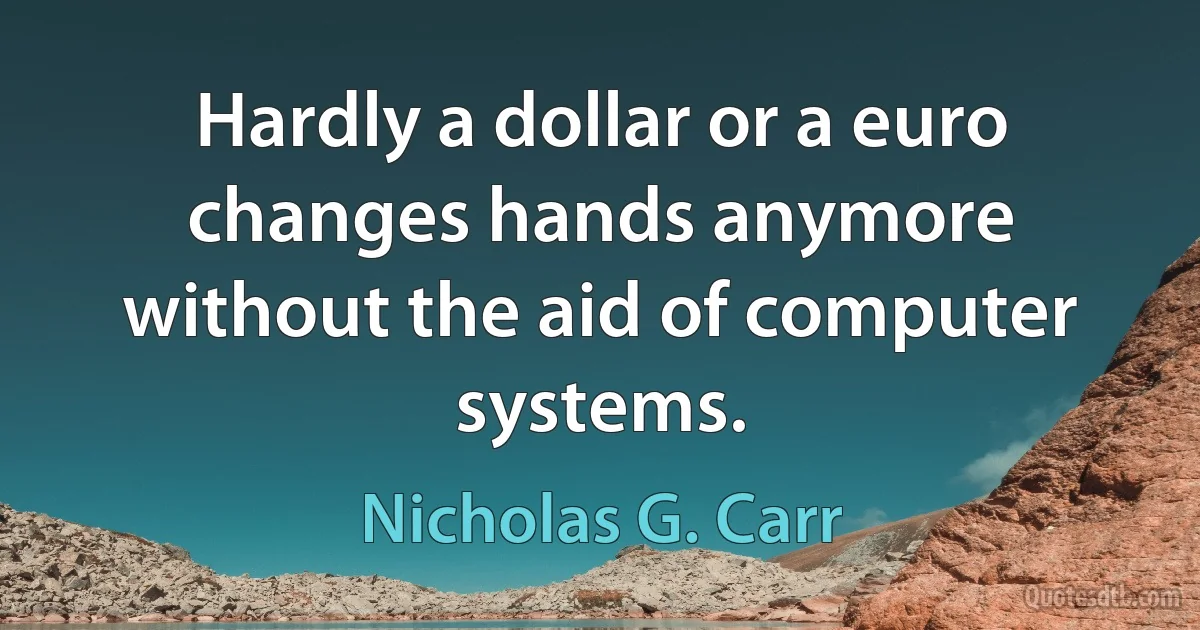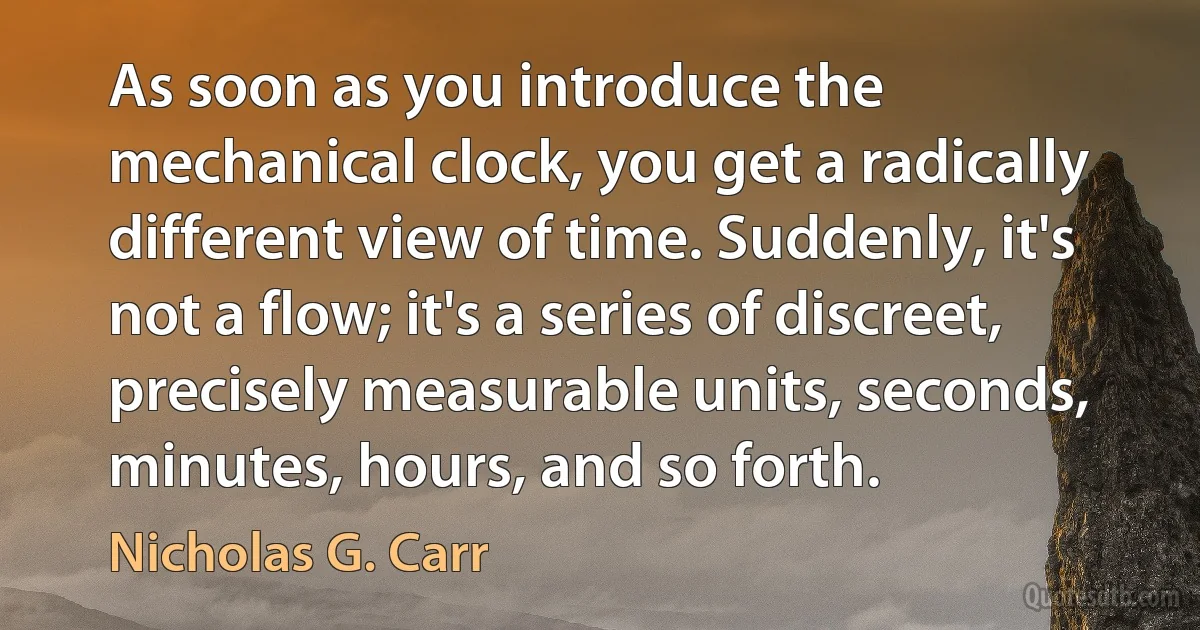Nicholas G. Carr quotes
What the Net does is shift the emphasis of our intelligence, away from what might be called a meditative or contemplative intelligence and more toward what might be called a utilitarian intelligence. The price of zipping among lots of bits of information is a loss of depth in our thinking.

Nicholas G. Carr
In the long run, though, the greatest IT risk facing most companies is more prosaic than a catastrophe. It is, simply, overspending. IT may be a commodity, and its costs may fall rapidly enough to ensure that any new capabilities are quickly shared, but the very fact that it is entwined with so many business functions means that it will continue to consume a large portion of corporate spending.

Nicholas G. Carr
By putting the means of production into the hands of the masses but withholding from those same masses any ownership over the product of their work, Web 2.0 provides an incredibly efficient mechanism to harvest the economic value of the free labor provided by the very, very many and concentrate it into the hands of the very, very few.

Nicholas G. Carr
Today, no one would dispute that information technology has become the backbone of commerce. It underpins the operations of individual companies, ties together far-flung supply chains, and, increasingly, links businesses to the customers they serve. Hardly a dollar or a euro changes hands anymore without the aid of computer systems.

Nicholas G. Carr
...media are not just passive channels of information. They supply the stuff of thought, but they also shape the process of thought. And what the Net seems to be doing is chipping away my capacity for concentration and contemplation. My mind now expects to take in information the way the Net distributes it: in a swiftly moving stream of particles. Once I was a scuba diver in the sea of words. Now I zip along the surface like a guy on a Jet Ski.

Nicholas G. Carr
You can take a book to the beach without worrying about sand getting in its works. You can take it to bed without being nervous about it falling to the floor should you nod off. You can spill coffee on it. You can sit on it. You can put it down on a table, open to the page you're reading, and when you pick it up a few days later it will still be exactly as you left it. You never have to be concerned about plugging a book into an outlet or having its battery die.

Nicholas G. Carr
The Internet, like all intellectual technologies has a trade off. As we train our brains to use it, as we adapt to the environment of the internet, which is an environment of kind of constant immersion and information and constant distractions, interruptions, juggling lots of messages, lots of bits of information.

Nicholas G. Carr
We don't constrain our mental powers when we store new long-term memories. We strengthen them. With each expansion of our memory comes an enlargement of our intelligence. The Web provides a convenient and compelling supplement to personal memory - but when we start using the Web as a substitute for personal memory, by bypassing the inner processes of consolidation, we risk emptying our minds of their riches.

Nicholas G. Carr
The only thing going on is the progression of words and sentences across page after page and so suddenly we see this immersive kind of very attentive thinking, whether you are paying attention to a story or to an argument, or whatever. And what we know about the brain is the brain adapts to these types of tools.

Nicholas G. Carr



